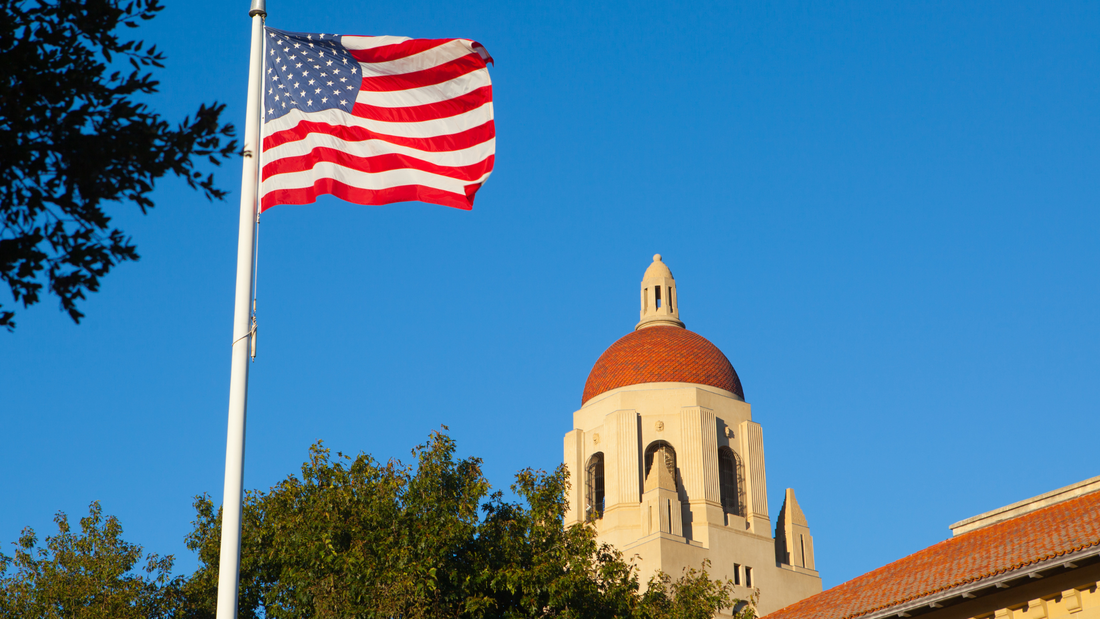|
Disruptive Associate Dean Put “On Leave" Stanford University Law School Dean Jennifer S. Martinez penned a 10-page letter that is a masterful defense of the spirit of the First Amendment in higher education. Along the way, she demonstrates that behavior has consequences. Dean Martinez announced that Associate Dean Tirien Steinbach, who orchestrated student hecklers’ abusive veto of the remarks of federal judge Kyle Duncan, is now “on leave.”
After that traumatic event, Dean Martinez arrived at the classroom where she teaches her constitutional law class. She found her whiteboard covered in fliers. One read: “We, the students in your constitutional law class, are sorry for exercising our 1st Amendment rights.” Some on Twitter made snarky remarks that these law students don’t understand that the First Amendment only restrains the government. It does not cover an elite, private university. But the snarks are wrong. In her letter, Dean Martinez responds that the First Amendment certainly does apply to the university. She cites California’s Leonard Law, a statute that prohibits private colleges from making or enforcing rules that would punish students for speech that would be protected under the First Amendment and California Constitution in a public university. The problem is, for the protestors who shut down the judge’s speech, the students in need of protection would be the members of the Stanford chapter of the Federalist Society who invited the judge to Stanford. That legalistic approach is necessary. After all, Martinez writes, her students are in a law school. But the body of her piece is about the spirit of debate and open exchange that is the heart of a First Amendment society. Martinez distinguishes between an indoor university classroom and an outdoor event, where under settled First Amendment law, boisterous demonstrations might be more acceptable. Students also have a right to silently uphold signs indoors. But they do not have a right to shout down speakers. Central to Martinez’s letter is that “diversity, equity, and inclusion actually means that we must protect free expression of all views.” That principle, apparently shocking to some, includes protection of the conservative Federalist Society. Those who don’t understand this are turning their backs on “rights to freedom of association that civil rights lawyers fought hard in the twentieth century to secure.” Martinez embraces the 1967 Kalven Report, popularly known as the University of Chicago principles. It declares: “The university is the home and sponsor of critics; it is not itself the critic.” Having set the logical premise of her argument, Martinez turns to a powerful peroration, likening the DEI ethos prevalent in today’s campuses to a call for academic and philosophical freedom. “We support diversity, equity, and inclusion when we encourage people in our community to reconsider their own assumptions and potential biases. We support diversity, equity, and inclusion when we encourage students to connect with and see each other as people.” She adds that “some students might feel that some points should not be up for argument and therefore that they should not bear the responsibility of arguing them (or even hearing arguments about them), but however appealing that position might be in some other context, it is incompatible with the training that must be delivered in a law school. Law students are entering a profession in which their job is to make arguments on behalf of clients whose very lives may depend on their professional skill. Just as doctors in training must learn to face suffering and death and respond in their professional role, lawyers in training must learn to confront injustice or views they don’t agree with and respond as attorneys.” She concludes by announcing that the law school will be holding a mandatory half-day session in spring quarter for all students on the topic of freedom of speech and the norms of the legal profession. No doubt, such training is necessary. For those of a certain age who remember reading Milton’s Areopagitica in high school, it is worrisome that an elite law school must conduct remedial training on the value of open debate and free speech. Dean Martinez’s letter shows many in academia are willing to take strong moves to reignite devotion to the First Amendment. Comments are closed.
|
Archives
June 2024
Categories
All
|
ABOUT |
ISSUES |
TAKE ACTION |



 RSS Feed
RSS Feed